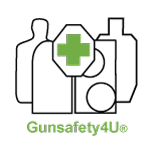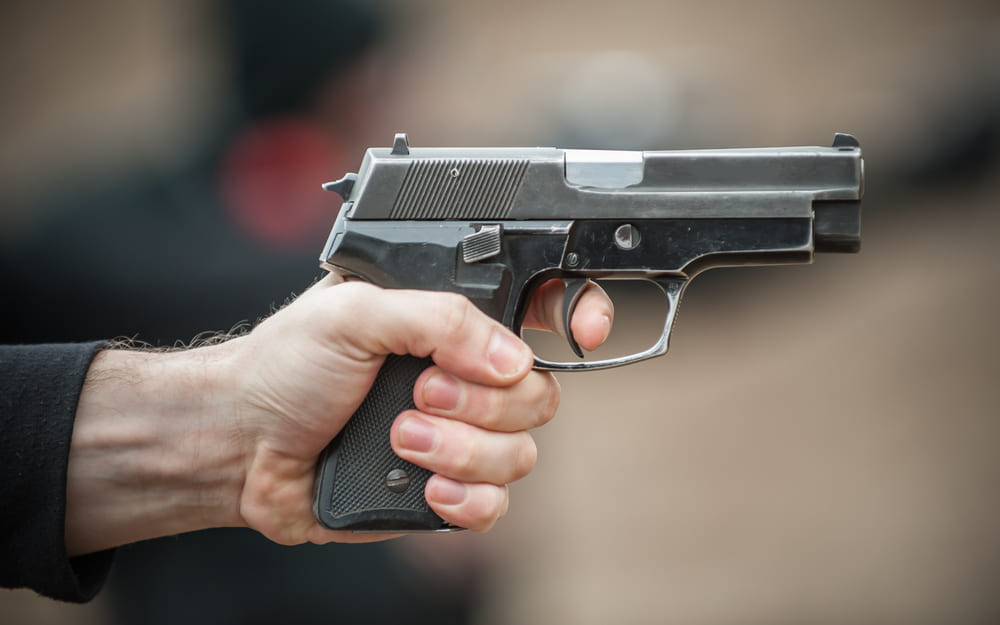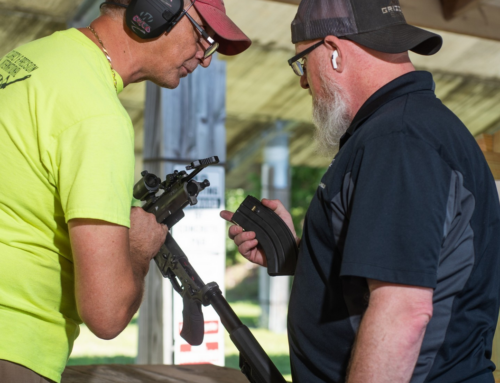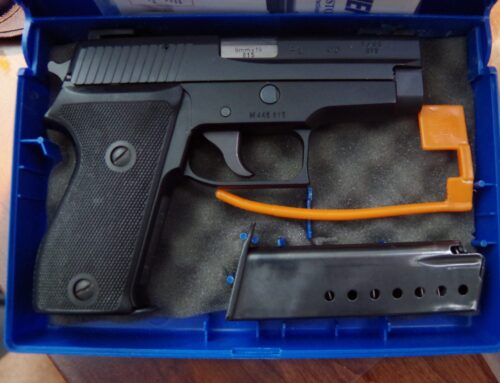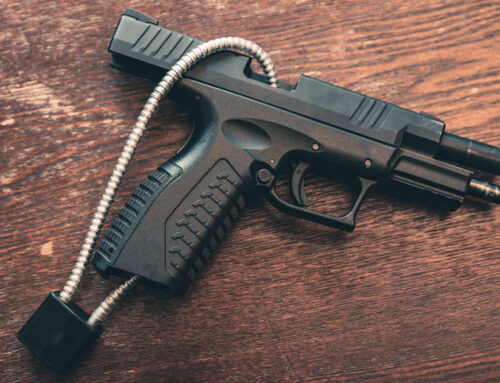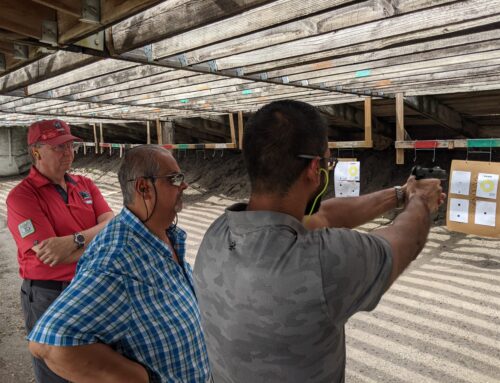Owning a firearm comes with serious responsibilities. Whether you’re a seasoned gun owner or a novice, maintaining safety is crucial to prevent tragic accidents. Unfortunately, many gun-related incidents stem from common safety mistakes that are entirely avoidable. In this guide, we’ll highlight the top 10 firearm safety errors and provide practical tips on how to avoid them.
GUNSAFETY4U, one of the few NRA-certified training centers in the U.S., is committed to educating responsible gun owners. To elevate your skills and ensure safe handling, check out the courses offered by GUNSAFETY4U.
Why Gun Safety Matters
Firearms are tools that require respect, knowledge, and caution. According to research from the Johns Hopkins Center for Gun Violence Solutions, preventable gun-related injuries and deaths remain a significant public health issue in the U.S. Even experienced gun owners can fall into bad habits that compromise safety. By recognizing and correcting these mistakes, you can contribute to a safer environment for yourself and those around you.
The Top 10 Common Gun Safety Mistakes (And How to Avoid Them)
1. Failing to Treat Every Gun as Loaded
Many gun accidents happen because people assume their firearm is unloaded. This misconception can have deadly consequences.
How to Avoid This Mistake:
- Always assume every firearm is loaded until you’ve personally verified otherwise.
- Double-check the chamber and magazine before handling or cleaning the firearm.
Tip: Schedule a safety class at GUNSAFETY4U to learn best practices for handling and verifying unloaded firearms.
2. Poor Trigger Discipline
One of the most critical firearm safety rules is to keep your finger off the trigger until you’re ready to shoot. Unfortunately, many people develop the habit of resting their finger on the trigger, increasing the risk of accidental discharge.
How to Avoid This Mistake:
- Always keep your trigger finger straight , up on the frame or receiver, and outside the trigger guard.
- Only move your finger to the trigger when you have aimed at your target and are ready to shoot.
3. Improper Firearm Storage
Improperly stored firearms are one of the leading causes of accidental shootings, especially involving children. Leaving guns unsecured is not only dangerous but can also lead to legal consequences.
How to Avoid This Mistake:
- Use a gun safe or a locked cabinet to store firearms.
- Utilize gun locks and store ammunition separately.
- Check out advanced storage solutions at GUNSAFETY4U.
For more on firearm safety data, visit the Johns Hopkins Gun Violence Research Reports.
4. Ignoring the Muzzle Direction Rule
The muzzle should always point in a safe direction. Accidents often happen when gun owners unintentionally point their firearms at themselves or others.
How to Avoid This Mistake:
- Be conscious of where your muzzle is pointing at all times.
- Practice situational awareness, especially in confined spaces.
5. Lack of Regular Maintenance
Firearms require regular cleaning and maintenance to function correctly. Dirt, debris, or worn-out parts can lead to malfunctions and accidents.
How to Avoid This Mistake:
- Clean your firearm after every use and inspect it regularly.
- Take a firearm maintenance course at GUNSAFETY4U to learn proper techniques.
6. Skipping Firearm Training
Many gun owners assume that once they’ve handled a firearm, they don’t need further training. However, skills can degrade over time, and laws frequently change.
How to Avoid This Mistake:
- Take refresher courses periodically to maintain your proficiency.
- Enroll in courses at GUNSAFETY4U for personalized training.
According to Johns Hopkins Annual Firearm Data, lack of training contributes to preventable firearm injuries.
7. Using the Wrong Ammunition
Using incorrect ammunition for your firearm can lead to malfunctions, damage, or catastrophic failure.
How to Avoid This Mistake:
- Always check the caliber marking on your firearm (usually on the Barrel Hood) and match it with the ammunition (Box and Headstamp).
- Consult your firearm’s manual for approved ammunition types. Many firearms get accelerated wear or damage from +P or +P+ ammo.
8. Firing Without Proper Eye and Ear Protection
The noise and recoil from firearms can cause permanent damage to your hearing and eyesight if you’re not adequately protected.
How to Avoid This Mistake:
- Invest in quality ear protection (earmuffs or earplugs) and safety glasses. Electronic hearing Protection is far superior and allows you to hear conversations while shooting.
- Eye Protection can be Prescription glasses. Safety glasses with protective side guards may be required by some disciplines.
- Never shoot at the range without these protective items.
9. Neglecting to Clear the Chamber After Use
One of the most dangerous mistakes is assuming the chamber is empty after removing the magazine. Many firearms can still fire with a round in the chamber.
How to Avoid This Mistake:
- Always rack the slide or bolt and visually inspect the chamber after removing the magazine.
- Make this a habit every time you handle your firearm.
10. Overestimating Your Skill Level
Confidence is essential, but overconfidence can be dangerous. Trying to perform advanced maneuvers without proper training can lead to accidents.
How to Avoid This Mistake:
- Recognize your limitations and seek training to improve your skills.
- Advanced carry and defensive courses at GUNSAFETY4U can help elevate your capabilities in a safe environment.
FAQs: Common Gun Safety Mistakes
1. Why is trigger discipline so important?
Trigger discipline is crucial because accidental discharges can occur if your finger is on the trigger before you’re ready to shoot. Practicing proper discipline can prevent these incidents.
2. How can I safely store my firearm at home?
Invest in a quality gun safe, use trigger locks, and store ammunition separately. Check out storage solutions at your local gun shop.
3. What should I do if I’m unsure about the type of ammunition to use?
Refer to your firearm’s manual or consult a professional. Using incorrect ammunition can cause damage to the firearm and potentially harm the shooter.
4. Is training necessary if I already know how to shoot?
Yes, continuous training is essential to keep skills sharp and stay updated on the latest safety practices. Contact GUNSAFETY4U for basic and advanced courses.
5. How often should I clean my firearm?
Ideally, clean your firearm after every use, especially if you’ve fired a large number of rounds. Florida humidity makes it even more important. Regular cleaning prevents malfunctions and extends the life of your firearm.
6. Can I practice firearm handling at home?
Yes, but make sure your firearm is unloaded, and there’s no live ammunition nearby. Close the Blinds. Consider using snap caps for dry fire practice.
Commit to Gun Safety Today
Whether you’re new to firearms or have years of experience, proper training and safety practices are essential. Don’t let common mistakes put you or your loved ones at risk. Contact GUNSAFETY4U today to enroll in one of our NRA-certified courses and become a more responsible gun owner.
Get Started Now!
Call GUNSAFETY4U at (727-470-0960)
Your safety and the safety of those around you is priceless. Prioritize training today—no matter your experience level.
